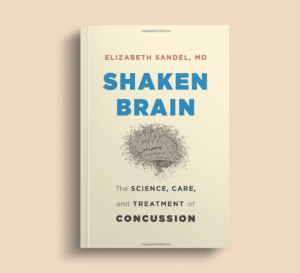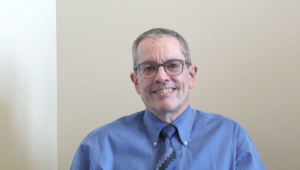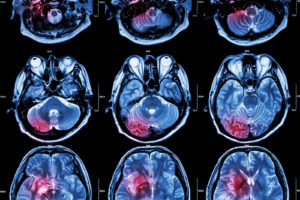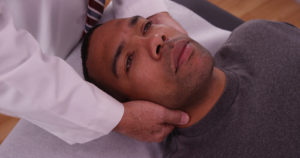A Neuropsychologist is a Brain Injury Expert

If you haven’t yet, do watch the interview that I conducted with Dr. Richard Delmonico. Dr. Delmonico is a neuropsychologist with extensive experience treating TBI, and in particular youth concussions. You can watch that interview here.
One thing he talked about was the importance of various professionals in the diagnosis and treatment of TBI. Many individuals may be involved from the start to the end of treatment – a first responder at the scene of an accident or a coach or athletic trainer at a football game where the injury occurred; an E.R. doctor or a primary care physician; and various physiatrists (physical medicine and rehabilitation physicians), neurologists, speech pathologists and other therapists along the way.
Two other individuals that Dr. Delmonico stressed the importance of involving early on are neuropsychologists and health educators.
The Role Of The Neuropsychologist In TBI Cases
A neuropsychologist is a doctor whose area of expertise involves the relationships between brain functioning and behavior. While a neurologist diagnoses and treats diseases and disorders of the brain and nervous system with medications, a neuropsychologist focuses more on the behavioral, cognitive, and emotional aspects of the disease or disorder, offering evaluations and interventions to improve these areas of functioning with counseling, education, and advice.
Dr. Delmonico stresses the importance of the neuropsychologist as a primary team member. That means the sooner a neuropsychologist can be involved in the process of evaluation and treatment of a possible brain injury, across the spectrum from mild concussions to more severe brain trauma, the better.
In the assessment phase, neuropsychologists are able to run assessments and look at a patient’s memory and other cognitive functions, and assess the patient for mood disorders or other psychological conditions. During treatment, he or she can help with utilizing cognitive rehabilitation and psychotherapy to aid the patient’s recovery and adjust to life after the injury. They also act as an educator for the patient and his or her family.
The Role Of The Health Educator In TBI Cases
The health educator’s primary job is to educate the patient and family members about what has already happened and what is likely to happen next. For children and teens, health educators are important in communicating to parents, pediatricians, and, if applicable, coaches, about the patient’s injury and treatment plan. They will explain the importance of initial mental rest, introduction of gradual exercise, and limited screen time (TVs, computers, and smartphones) in helping the brain heal.
Patients and family members alike need to understand that while a person may “look fine,” their brains have been physically injured and that their behavior, memory, emotional states, and thought processes may suffer as a result.
What This Means For You
Depending on where the injury occurs (on the football field or on the highway) and whether brain injury is suspected from the outset, there are several reasons why a neuropsychologist may not be brought into to a case right away. Often, a primary care physician or emergency medicine doctor will be the first healthcare provider to evaluate the once brain trauma is suspected. A physiatrist (physical medicine and rehabilitation medicine physician) or a neurologist may also play an important role in the early phases of treatment. Physical and occupational therapists, and speech language pathologists may also be involved along the path of treatment.
However, if you have been injured and are experiencing behavioral, cognitive, or emotional problems, talk with your physician about a referral to a neuropsychologist and add that member to your team sooner rather than later. If you’re a parent whose child has suffered a concussion or other brain trauma, you may want to speak to a health educator as well.
Watch the full interview with Dr. Delmonico
For more on how these medical professionals help in TBI cases, watch the full interview with Dr. Richard Delmonico. You can view it here.
You Might Also Like
Comprehensive Care of Concussions
Dr. Richard Delmonico, a neuropsychologist, outlines the approaches to triage and treatment in a concussion clinic in the Northern California Kaiser Permanente health system. He also discusses the uses of neuropsychological testing to help with diagnosis and management of people with concussions and other brain injuries.
Brain Imaging after an Injury
CT and MRI scans are the most common imaging modalities to evaluate people with traumatic brain injury, but advanced imaging methods are more promising for diagnosis and prognosis. However, interpretations of findings can vary.
Is Concussion a Diagnosis?
Clinicians like me say that concussion requires a clinical diagnosis based on the history of what happened to produce the symptoms. However, because these same symptoms appear in other conditions, and we don’t have reliable biomarkers, diagnosing a concussion can sometimes be a challenge. The lingering effects of a mild brain injury can also continue as a chronic condition, often referred to as post-concussion syndrome or persistent post-concussion symptoms, that still require treatment.
Keep up to date
Get updates on the latest in concussion, brain health, and science-related tools from Dr. Elizabeth Sandel, M.D.
By clicking SIGN UP, you agree to receive emails from Dr. Sandel and agree to our terms of use and privacy policy.
Get the book!




